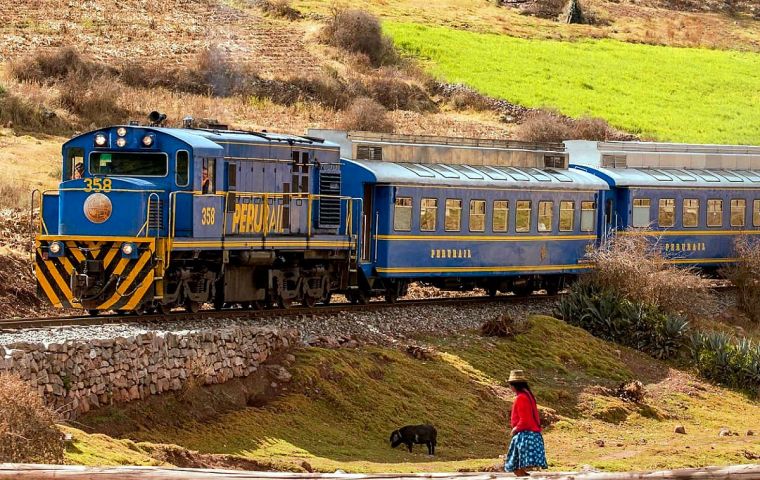MercoPress. South Atlantic News Agency
Machu Picchu closed again for security reasons and protests from local villages
 The surprise measure came just six weeks after the tourist hotspot reopened following an almost eight-month closure due to the coronavirus pandemic
The surprise measure came just six weeks after the tourist hotspot reopened following an almost eight-month closure due to the coronavirus pandemic The Inca citadel of Machu Picchu, the crown jewel of Peru's tourist sites, closed its doors Monday for an indefinite period for security reasons amid protests by locals over train services, officials said.
“Due to the announced stoppages in the Machu Picchu district and in order to safeguard the integrity of its visitors, the citadel of Machu Picchu will not be open from Dec 14 until this situation is restored,” said a statement issued by the Directorate of Culture of Cusco.
The surprise measure came just six weeks after the tourist hotspot reopened following an almost eight-month closure due to the coronavirus pandemic. The suspension is expected to last until the end of protests by residents of the towns of Machu Picchu and Ollantaytambo against the railway companies that offer local train service.
The local communities are demanding cheaper fares and more frequent trains on the route between Cusco and Aguas Calientes, the nearest town of Machu Picchu, which could be only be reached by train. The train is the only means of transport for tourists visiting the citadel, but it is also widely used by the inhabitants of the area, where only two companies operate: Inca Rail and Peru Rail.
The protests began peacefully last Wednesday but escalated over the weekend with an occupation of the tracks, which sparked clashes with the police and threats to occupy the citadel.
Sespite the protests, the site of Machu Picchu remained open over the weekend. Machu Picchu had increased its capacity by 40% on Dec 1 to 1,116 daily visitors, a month after its reopening, as Covid-19 infections slowed in Peru.
Before the pandemic, between 2,000 and 3,000 people entered the citadel every day, and in high season, up to 5,000. In March, on the last day of visits, 2,500 people entered. Since Machu Picchu reopened, admission was to have remained free until Dec 31.
Visitors must comply with health and safety protocols for the coronavirus, such as wearing a mask.
Machu Picchu (which means “Old Mountain” in Quechua) is considered the jewel of Peruvian tourism. In 1983, it was declared a World Heritage Site by Unesco, and in 2007, it was chosen as one of the Seven Wonders of the Modern World in a worldwide online survey.




Top Comments
Disclaimer & comment rulesCommenting for this story is now closed.
If you have a Facebook account, become a fan and comment on our Facebook Page!